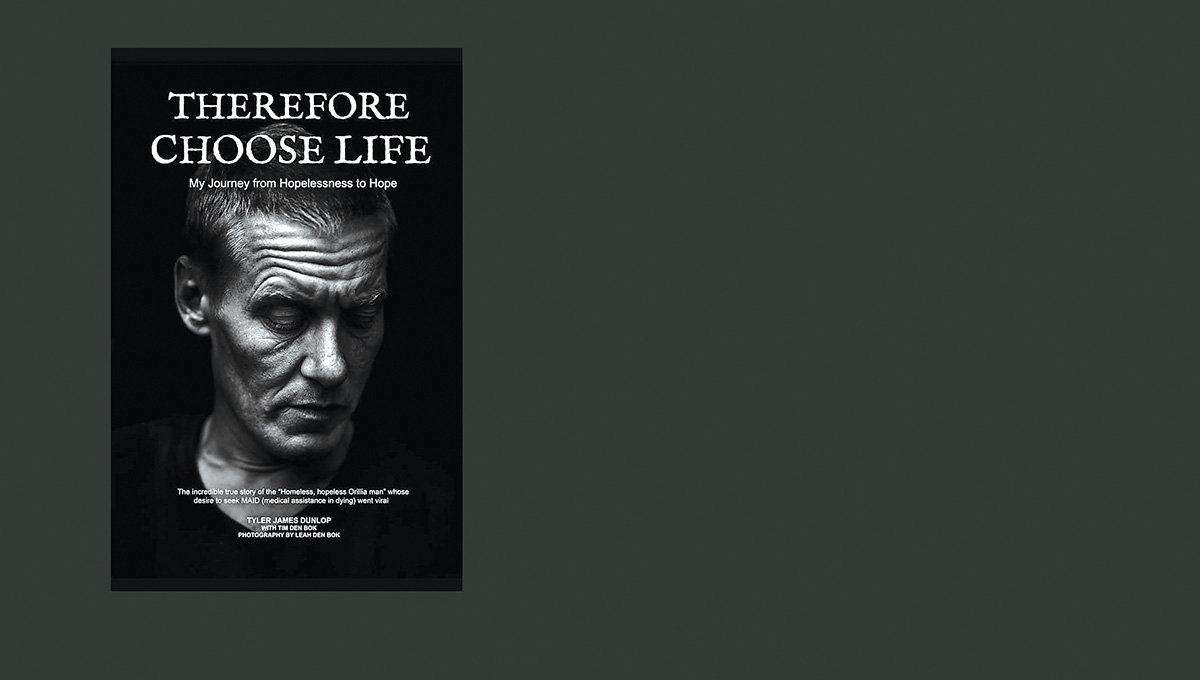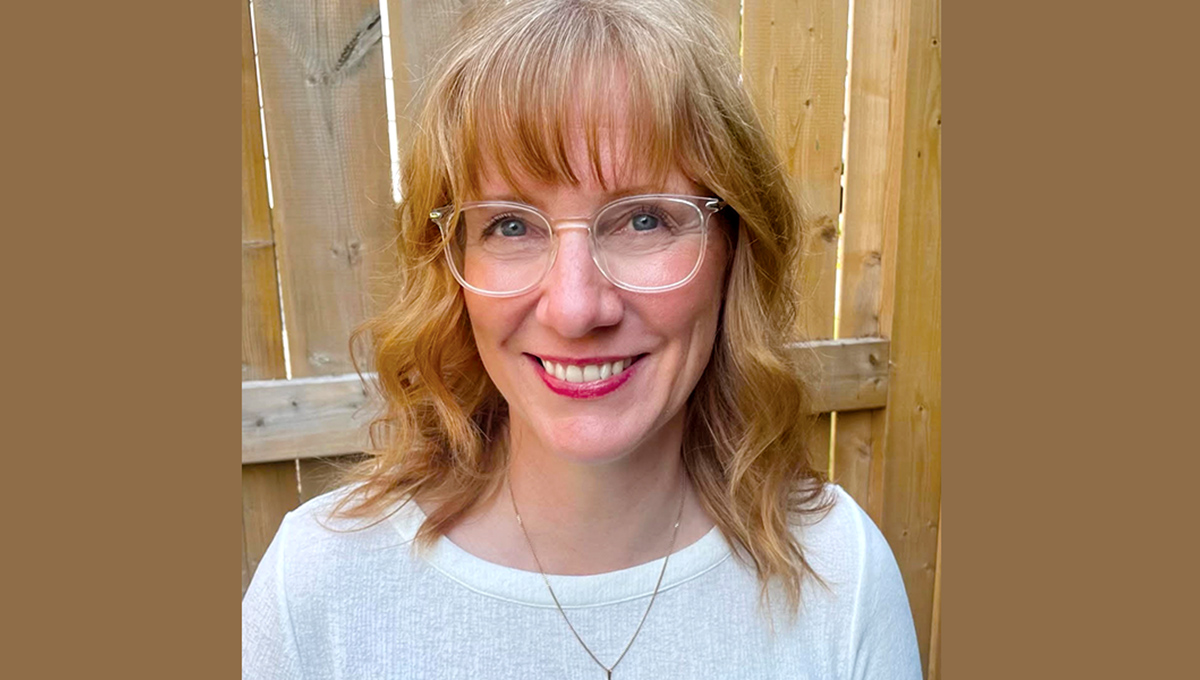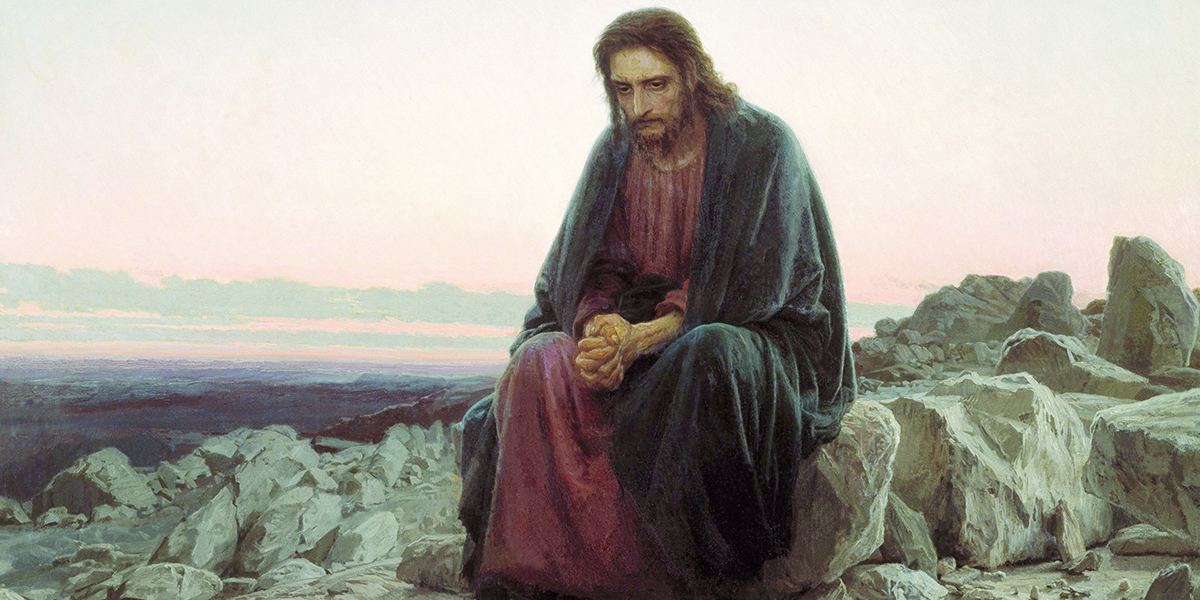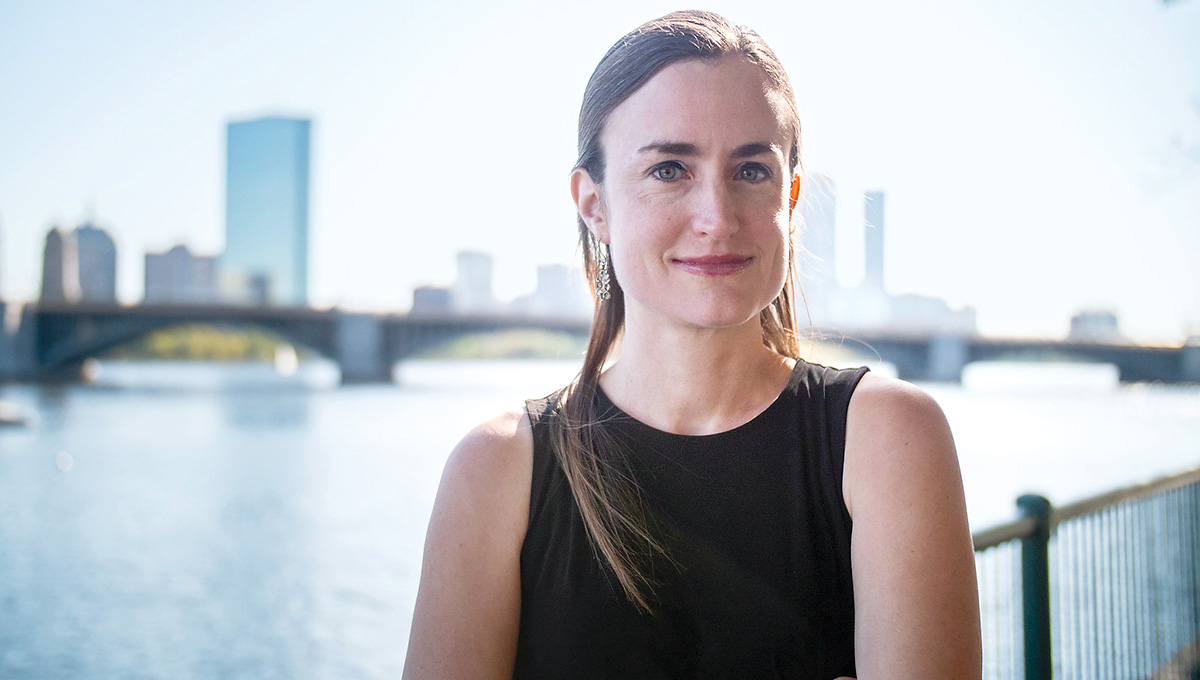
By Tyler James Dunlop with Tim den Bok
Independently published, 2023
Review and Comment by Margaret Cottle, MD
IN Therefore Choose Life, by Tyler James Dunlop with Tim den Bok, Dunlop’s life story is interwoven with Canada’s practice of medical termination – MAiD (Medical Assistance in Dying, a euphemism). Dunlop’s serious contemplation of MAiD as a way out of his suffering brought his situation to the attention of Canadians and eventually resulted in this book. Although raw at times, the authenticity of the narrative makes it accessible, and Leah den Bok’s evocative photos provide excellent context. Dunlop unflinchingly describes his past and present life without maudlin religious optimism. His tragic childhood and continued battle with bi-polar disorder, schizophrenia, multiple addictions, PTSD, homelessness and trauma are all explored. His understanding that he will likely contend with these issues throughout his lifetime is insightful.
Dunlop reveals in chilling detail the horror of life on the streets and the disgusting conditions in most homeless shelters. He does not focus on blaming others, and instead provides constructive suggestions that could bring significant benefits to those living in similar situations. Programs such as “Housing First” and “Contingency Management” have proven very successful in other jurisdictions and merit further exploration by those with authority and influence.
Broad, open consultations are essential, especially with those such as Dunlop who have the lived experience to make important contributions. Church members and leaders would also benefit from a close reading of this book. Even small changes, when discovered and implemented, could make our communities more welcoming. Dunlop clearly documents the disheartening truth that most people who are marginalized view churches as judgmental and untrustworthy. This is tragic and difficult to remedy, but we must try. Truly listening to voices such as Dunlop’s would be a prudent beginning.
“As I have argued,” says Dunlop, “the trouble with Canada goes deeper than the political realm. Its problem is primarily a spiritual one: Canada has forgotten God!”
And Dunlop is correct; here is the proof. Since the legalization of medical termination – MAiD – in 2016, our governments not only permit one member of the human family to take the life of another, but they also equip their agents to do so. Parliament and the courts have ruled that killing can be better than caring. And there are some lives that are deemed “not worth living.” This is our abhorrent and grim reality in Canada today. It was originally promised that no one would be approved for MAiD due to deficits in the social determinants of health. However, as predicted, the introduction of medical termination has inevitably led some people living without adequate social supports to request MAiD, and governments have fulfilled many of those requests. Now, less than six years after legalization, labels such as “uncompassionate” and “paternalistic” are applied to those who assert that killing is not an “answer” to any problem.
Despite our culture’s rhetoric to the contrary, medical termination is not a “nuanced issue.” Every person is precious, made in the image of God, and has inherent dignity and worth. Killing members of our human family is strictly forbidden in peacetime. We simply do not kill each other, even if asked to do so. Neither personal nor community Shalom – peace with order – can ever come through anything that is against God’s beautiful, protective commandments. The actual nuance for us is how to live as faithful Christians in a society that believes that this type of killing is a cultural “good” and a civic “right.” The idea that MAiD is an autonomous choice is a delusion. Not only are we influenced by everything around us – including our social conditions and resources – but, because MAiD is provided by our governments, every citizen is in some way complicit in every hastened death.
Dunlop adds another relevant face and life story to Canada’s unfolding dance with death. The main reasons Dunlop considered MAiD were his poor social determinants of health, his existential suffering and his loneliness. The crucial importance of even one true friend (in Dunlop’s case, Tim den Bok) and a wider supportive community is strenuously and properly emphasized. Surely, we can collectively do better in Canada, especially Christian Canada, and come alongside those who are suffering with substantial practical and spiritual support for “the least of these” – as in Matthew 25.
Yes, life is messy and difficult at times, but it is still a gift from God and worth preserving, as Dunlop and den Bok remind us. Dunlop concludes:
“I know, because of my mental illness, trauma, homelessness and alcohol addiction, that my journey will always be dark and difficult. But I also know that my destination is assured. Jesus said, ‘No one will snatch [you] out of my hand’ (Matt. 10:28 NIV) …. God has given me hope, meaning and purpose. And He will do the same for you if you ask Him to.” TAP
Dr. Margaret Cottle, MD, CCFP(PC) LM, has been a palliative care physician for over 35 years. She has often written and spoken on end-of-life issues, including for members of the Canadian Parliament. She lives in Vancouver, BC.

EASTER is the most important festival for Christians, because it is the basis of our faith.
continue reading
ON NOV. 20, 2023, Bp. Andrew Asbil issued an “important liturgical note” to the Diocese of Toronto. His choice of date was intentional: he noted that it is was the “Trans Day of Remembrance and Resilience.” He quoted from Genesis 1, and spoke of God’s creation – “an act of love,” which “includes a vast spectrum of diversity, including human diversity.
continue reading
IN THE GOSPEL LESSON for this first Sunday in Lent, we have Saint Matthew’s account of the temptations of Jesus. This lesson is clearly intended to establish in our minds the meaning and the message of the Lenten season, and we should examine it with careful attention. And perhaps before we do that, it would be useful to think for a moment about the background and context of the story.
continue reading(Staff) Russia’s most famous opposition leader and political prisoner died suddenly on Feb. 16 while incarcerated in the Arctic gulag. Alexei Navalny was only 47. The Kremlin denies any involvement in his death.

By Tyler James Dunlop with Tim den Bok
Independently published, 2023
Review and Comment by Margaret Cottle, MD

AT THE annual Mere Anglicanism conference, you’re likely to hear speakers from Oxford, Cambridge and McGill quote Goethe, Nietzsche and Rousseau. But what you come away remembering best are tales of some of the ordinary folk who influenced these scholars’ lives
JUST OVER thirty years ago two young women, Teresa from rural New Brunswick, Jane from rural Nova Scotia, were “sent” to a week-long camp for youth. That reluctant start has grown into a life-long friendship. Even with almost 3000 km now between them, they still consider each other close and supportive friends. Jane Neish, a teacher in Rankin Inlet, and Teresa d’Entremont, a victim services officer in Yarmouth, N.S., both say they owe a lot of what they hold in common to the influence of St. Michael’s Youth Conference (SMYC).
Copyright © 2024 The Anglican Planet. All rights reserved